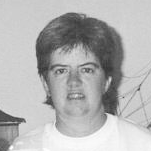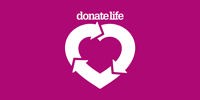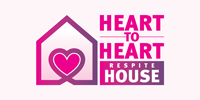Recovering from surgery
Immediately after surgery
After the operation, you will normally be taken to the Cardiothoracic Intensive Care unit. Family members will be able to visit you there, usually within about an hour of your return from theatre.
Visiting hours are flexible in ICU, however you should discuss with the nurse caring for your relative the most convenient time to visit. The support of family is very important at this time but other visitors are restricted as patients tire very easily. Within a few hours of your return, you will slowly wake up. You will feel the tube in your throat and you may feel thirsty.
The tube is connected to a ventilator, the machine that does the work of breathing for you until you are awake and strong enough to take over. After the tube is removed, you will be given an oxygen mask to wear. Your throat may be sore and your voice a bit hoarse. This is common but gets better in a few days. You will be connected to a heart monitor. There will also be several intravenous lines going into your shoulder and arms and an arterial line into your wrist. These allow staff to give you fluids and medications and are also used to monitor your blood pressure. The monitor is very sensitive and will pick vibrations caused by body movement. Do not be concerned if you hear any alarms from the attached machinery.
Transfer to the wards
After leaving intensive care, most patients will spend a few days in Ward 2F which is the cardiothoracic surgical ward. Lung transplant patients move to Ward 5 East which is the Respiratory Ward. Some patients will go directly from intensive care to Ward 5 East.
At first, most of your care will be attended to by your nurse. As you become more mobile and feel well enough, you will gradually be introduced to a program of self care. Your nurse will teach such tasks as charting your own fluid intake and output, taking your medications and recording your weight. As you become more confident, you can begin to do them for yourself. This will help you feel more confident when you leave hospital.
Physiotherapy
The physiotherapist will visit you daily after surgery. Your full co-operation is essential to aid expansion of your lungs and to avoid possible chest infection. Deep breathing exercises, strong effective huffing and coughing are very important and will aid a speedy recovery.
Nutrition
During recovery from your operation, you may usually eat any food that you can tolerate. This will prevent weight loss, promote healing and protect against infection. You may, if you wish, have some foods brought in from home. Prior to your discharge, your dietician will help you plan healthy eating at home.
Discharge
You'll be discharged from hospital when you're medically stable and when you've achieved independence with your self care including your medications. The average hospital stay is around two to four weeks.
Following discharge, you will be regularly reviewed in the Transplant Outpatient Clinic. At each visit, it is advisable that a family member accompany you. The Clinic visit may take between two and four hours, so bear this in mind when parking the car or arranging transport.
Being an outpatient means that you become responsible for your health although we can always be contacted by phone if you are uncertain of anything.
The wound
The wound is securely fastened at the time of surgery and by discharge it will be healing well. However, it takes two to three months for complete healing of the bone and wound and as you begin to do more, you may feel unusual aches and pains in the muscles of the chest and in the shoulders, neck and back. These pains will gradually diminish but may need pain relief tablets in the early days. You'll be prescribed these before your leave hospital.
No special treatment should be needed for your chest wound. This may be washed with un-perfumed soap and water as usual. If the wound becomes discoloured or discharges, you should contact your doctor immediately.




